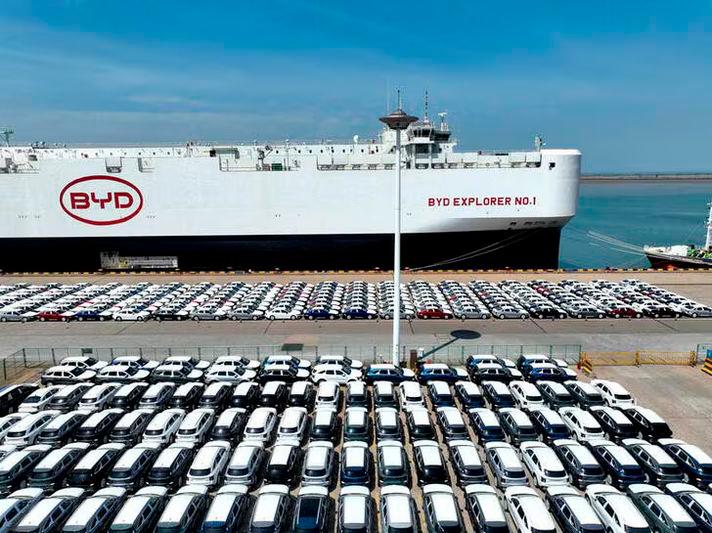BRUSSELS: The European Commission told automakers on Wednesday it would impose extra duties of up to 38.1% on imported Chinese electric cars from July, in a move that China called protectionist but its car industry dismissed as one without a major impact.
Less than a month after Washington quadrupled duties quadrupled duties for Chinese EVs to 100%, Brussels said it would set additional tariffs of 17.4% for BYD, 20% for Geely and 38.1% for SAIC, on top of the existing 10%, over what it said were excessive subsidies.
That equates to billions of euros of extra costs for the carmakers at a time they are struggling with slowing demand and falling prices at home, according to Reuters calculations based on 2023 EU trade data.
The move comes as European automakers are being challenged by an influx of lower-cost EVs from Chinese rivals.
Shares in some of Europe’s biggest carmakers which make a big portion of their sales in China, fell on fears of Chinese retaliation. Some like BMW will also now incur duties on their EVs made in China and sold in Europe.
“This anti-subsidy investigation is a typical case of protectionism,“ said Chinese foreign ministry spokesperson Lin Jian, adding the tariffs would damage China-EU economic and trade cooperation and the stability of the global automobile production and supply chain.
Lin said China urged the EU to support free trade, adding Beijing would take all necessary measures to “firmly safeguard” its legitimate rights and interests.
The Chinese Passenger Car Association seemed less concerned.
“The EU’s provisional tariffs come basically within our expectations, averaging around 20%, which won’t have much of an impact on the majority of Chinese firms,“ CPCA Secretary General Cui Dongshu said.
“Those exporting China-made EVs that include Tesla, Geely and BYD still have huge potential for development in Europe in the future,“ Cui said.
China’s commerce ministry said it would closely monitor the development and take all necessary measures to safeguard the legitimate rights of Chinese companies.
Beijing has already launched an anti-dumping investigation into mostly French-made imports of brandy. It also passed a law in April to strengthen its ability to hit back should the United States or EU impose tariffs on exports of the world’s No. 2 economy.
The EU provisional duties are set to apply by July 4, with the anti-subsidy investigation set to continue until Nov. 2, when definitive duties, typically for five years, could apply.
The Commission said it would apply rates of 21% for companies deemed to have cooperated with the investigation and of 38.1% for those it said had not.
Western producers such as Tesla and BMW that export cars from China to Europe were considered cooperating companies.
Margaritis Schinas, a Commission vice president, told a news conference that Chinese-built cars were benefiting from unfair levels of subsidies, threatening EU producers.
“On this basis the Commission has reached out to Chinese authorities to discuss these findings and explore possible ways for resolving the issues identified,“ he told a news conference.
The indicative tariffs are above expectations of analysts of between 10% and 25% on Chinese EVs.
BYD, Geely, SAIC and Tesla did not immediately respond to Reuters’ queries on the report.
CHALLENGED
Some economists said the immediate effect of the additional duties would be very small in economic terms because the EU imported around 440,000 EVs from China in the 12 months ending in April worth 9 billion euros ($9.7 billion) or around 4% of household expenditure on vehicles.
“But the anti-subsidy duties are intended to limit the future growth in EV imports which would otherwise take place rather than to block existing trade,“ said Andrew Kenningham, chief Europe economist at Capital Economics.
“The decision marks a big change in EU trade policy because, although the EU has used trade defence measures regularly in recent years, including against China, it has not previously done so for such an important industry. And Europe has been reluctant to engage in the kind of protectionism that the US has deployed since Donald Trump’s presidency,“ he said.









